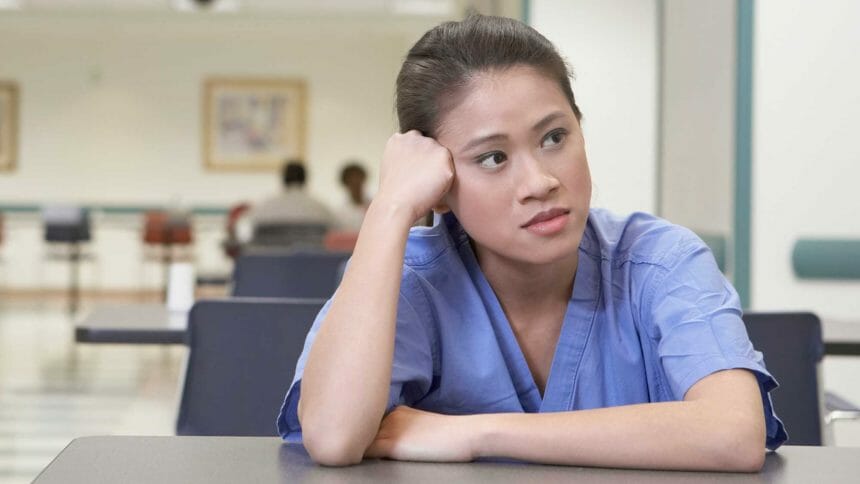
The safety and well-being of frontline workers in senior living and skilled nursing must be prioritized in order to ensure that older adults receive the care they need and that the spread of COVID-19 is minimized, leaders of professional organizations serving the industry said in a unified message released Thursday.
“These dedicated men and women and their families are making extraordinary sacrifices in these difficult times to protect and serve the most vulnerable among us. …This workforce must receive all the support and resources it needs from both the public and private sectors,” wrote American Health Care Association / National Center for Assisted Living President and CEO Mark Parkinson, Argentum President and CEO James Balda, American Seniors Housing Association President David Schless, LeadingAge President and CEO Katie Smith Sloan and National Investment Center for Seniors Housing & Care President and CEO Brian Jurutka.
The leaders called for COVID-19 testing to be prioritized for frontline healthcare workers and senior living community and skilled nursing center residents, personal protective equipment for frontline healthcare workers to be more readily available, and help so that frontline healthcare workers can meet their personal obligations so they are able to work.
Juniper Communities to test all residents and staff members
Meanwhile, also on Thursday, Bloomfield, NJ-based Juniper Communities said it had begun testing all residents and employees for COVID-19 at the communities it owns and will complete it “as quickly as possible.”
“Hospitals are clearly reaching their capacity. We hope to do our part with this initiative to flatten the curve and prevent new infections,” founder and CEO Lynne Katzmann said.
The company plans to use the data from the tests to build a comprehensive and proactive plan to manage the disease in Juniper communities. Results will be used to confirm symptomatic individuals for isolation, identify asymptomatic individuals for segregation and change staffing patterns to further limit cross-contamination.
Right now, Katzmann told McKnights Senior Living: “What we’re trying to do is limit the number of people who interact with each other every day. We have staff teams. There are about five people a day over three shifts, and those are the only people who interface with a very small group of residents so we’re minimizing the chance for transmission and cross-contamination.”
The CEO also hopes the testing will convey the safety of the senior living environment at a time when some are questioning it. “It’s an example of senior living going out and saying, ‘We are going above and beyond,’ ” she said.
Juniper is closely monitoring for symptoms in residents who have diabetes, heart disease, chronic obstructive pulmonary disease, asthma and other chronic conditions, Katzmann said, because they are especially vulnerable.
Across Juniper’s entire portfolio, one resident and seven staff members have tested positive for the virus, she said.
Those residents with COVID-19 or COVID-19-like symptoms have not been moved to other apartments, Katzmann said. “We may do that next week,” she added.
Juniper procured the tests through private / commercial laboratory vendors using Centers for Disease Control and Prevention-qualified reagents and operating under the Food and Drug Administration’s Emergency Use Authorization. “We are not taking needed tests away from state health organizations, medical providers or hospitals. The opening of the pipeline by the FDA is making greater testing available to everyone,” she said.
In other coronavirus-related news:
- Juniper is launching an initiative to inspire the public to help make or gather PPE and donate it to a local senior living community. “Send in the Gowns,” in partnership with ASHA and Music Theatre International, is focused on contacting theatre groups and costumers, because many of them have access to sewing teams and materials to make gowns, face masks and face shields. Anyone can join the cause, however. Directions for how to make the PPE are posted at the link.
- NIC has created a new online COVID-19 Resource Center to share information about several new initiatives designed to offer insights during the uncertainty of the COVID-19 crisis.
- LGBT elder advocacy group SAGE and the Human Rights Campaign have introduced a new resource to explain the reasons that lesbian, gay, bisexual and transgender older adults are particularly vulnerable during the COVID-19 crisis and to help ensure that those individuals get the care they need.
- The Justice and Health and Human Services departments announced Thursday that approximately 192,000 N-95 respirator masks, 598,000 medical-grade gloves, 130,000 surgical masks and other hoarded personal protective equipment will be distributed to frontline workers in New York and New Jersey. The FBI discovered the supplies March 30 during an enforcement operation by the Justice Department’s COVID-19 Hoarding and Price Gouging Task Force and alerted HHS.
- House Speaker Nancy Pelosi (D-CA) on Thursday announced the formation of the bipartisan House Select Committee on the Coronavirus Crisis to ensure that the more than $2.2 trillion in emergency relief funds passed by Congress “are being spent wisely and effectively” and without waste, fraud or abuse. The committee will be led by House Majority Whip James Clyburn (D-SC).
- At a press briefing Thursday, President Trump said the administration soon would issue guidance about members of the general public wearing face masks to prevent the spread of COVID-19. Members of the general public would not be advised to wear the same kind of masks as those designed for medical professionals. Deborah Birx, M.D., coordinator of the White House Coronavirus Task Force, said the masks would not be a substitute for social distancing and handwashing, which the administration would continue to recommend.
- Trump said Thursday that, under the Defense Production Act, he has ordered domestic manufacturers “like General Electric, Hill-Rom, Medtronic, ResMed, Royal Philips, and Vyaire Medical” to secure the supplies they need to build ventilators. “Today’s order will save lives by removing obstacles in the supply chain that threaten the rapid production of ventilators,” he said.



